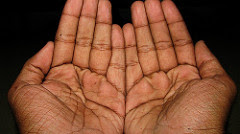By the way, the last read we will make is about Giorgio Agamben (we will post it soon).
For this session, we read "The Question Concerning Technology", "Science and Meditation" and "The thing". Here the seminary about Heidegger with the most interesting comments:
Heidegger introduces the difference between the ontic and the ontological (being): between the object and its essence. The true essence of each object is different from the object itself.
Essence of technology -> to become the world existences: What makes the technique is to convert everything that exists in the world in existences. Existences in Spanish means the existence of something, but also the amount of one thing we have stored (stock).
What is relevant is whether, originally, the title was "the question of technique" or "the question after the technique." (In English is the Question Concerning Technology, but in Spanish is more complex to understand this preposition).
At the end of the text, the technique can be a hazard if it becomes all in existences (including ourselves and if we don't make anymore questions), but we can also save us. The questions are necessary because if we fall into the trap that we can control the world and we know everything, we are abandoning our possibility of freedom, and freedom is the existential condition of life itself. Freedom is achieved precisely asking the questions because them give us the possibility to question how things are.
Freedom is the right question for the unveiling. We are free when we asked for the essence of things, not its ontological being. The thingness of the thing is co-link, to join (the pitcher joins the cuaternity itself, as connections heaven and earth, technical and object, etc).
The thingness of the thing is coligar, join (the jar joins the cuaternidad itself, as connections between heaven and earth, technics and object, etc). Interest in the concept of obstancy. This way of being present for the Romans is called obstancy.
About the sentence "The essence of science is that it is the theory of the real" (p. 34):
-Science: Contemporary Science, embedded from poetry and classical Greek art.
-Real: in Greece: The real fills the region of the effective, that which works. Work means doing (by man or nature), but also bring (a presence) and pro-duce. Reality therefore is what brings-there-front (dassein); the reality, that brought-there-before, in un-hidden and remains unconcealed. Later in Rome, the real becomes result (that is, that which precedes a cause that caused this result is reality) that follows from an act: real is what has been achieved (p. 36). It this way, the real is true, sure, what we take for granted; apparently as mere opposition or mere opinion (but still present in some different way than in Greece. This way of being present for the Romans call obstancia).
-Theory: in Greece, to watch the aspect under which the present appears. Through this vision, to stay fit him watching (p. 37), is the respectful attention to the state of unconcealment of the present, the "the look that selther the truth ". In Modernity: It comes from Rome with contemplatio: separate, divide. The theory is an elaboration of the real; but also prevail however what the presence (as theory Science, provokes the real itself in view of its obstancia). It is a represent that makes sure everything real in your prosecutable obstancy (represent = to keep this in any particular way and no other). Therefore, modern science as a theory of reality, it is not obvious.
Gestell in Heidegger structure site, but now is translated as disposition, the same translation of "agencement" in Deleuze. In Bourdieu so does the habit, which is also a translation available. It is what makes the bring-there-before (brought from far away).
The essence is not infinite, is the en-durance (the recurring endure), which remains when we reveal the essence. Each essence reveals something of the hidden. For example, today, what reveals a PC or a Mac? Heidegger focuses on objects that have a very long duration in history (a pitcher, art ...) but not in recent-creation objects.
In Heidegger, we are caught in classical ontology, he tries to break it but he still stayy within it because his question is the classic question of being. However, in other philosophers focus on the becoming or the difference left the classical ontology. In Heidegger, there is always an essence that remains (in the first computer, in a normallaptop and in a brand-new mac. The Rhine river does not change by putting a dam or a mill. Deleuze says that what we call essence is changing, the eternal return never brings to the same (in the line of Heraclitus). The Rhine river changes by putting a dam or a mill.
Photo Credit: Alex Brown







